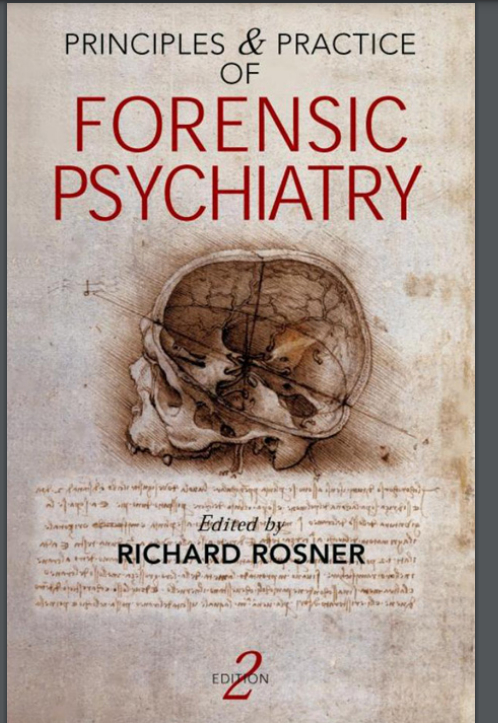

Principles and Practice of Forensic Psychiatry, Second Edition by Richard Rosner and Michael S. D. Reiser is a comprehensive reference that bridges the disciplines of psychiatry, psychology, law, and criminology, offering an in-depth exploration of how mental health intersects with the legal system. The book provides an authoritative overview of the key principles, practices, and ethical dilemmas faced by forensic psychiatrists as they evaluate, treat, and testify in legal contexts. It begins by tracing the history of forensic psychiatry, its evolution as a field, and the foundational concepts of criminal responsibility, competency, and the insanity defense, then progresses into the practical application of psychiatric expertise in both civil and criminal courts. The authors detail essential processes such as competency evaluations, risk assessment for violence, malingering detection, and the psychiatric analysis of criminal behavior, including sexual offenses, domestic violence, and serial crimes. A significant portion of the text is dedicated to understanding how psychiatric disorders—from schizophrenia and mood disorders to personality disorders and substance abuse—interact with criminal behavior and how these conditions influence culpability and sentencing. Beyond criminal matters, the book also addresses forensic psychiatry’s role in civil cases such as malpractice, disability claims, child custody disputes, and involuntary hospitalization, highlighting the psychiatrist’s responsibility to balance clinical care with legal objectivity. Ethical challenges such as maintaining neutrality, avoiding dual relationships, and ensuring informed consent in forensic evaluations are explored in detail, reflecting the delicate balance between serving the justice system and upholding psychiatric ethics. With numerous case examples, legal precedents, and practical guidelines, Rosner and Reiser provide readers with not only the theoretical framework but also the real-world applications of forensic psychiatry, making the book an indispensable resource for mental health professionals, legal practitioners, and students. Ultimately, the work underscores the psychiatrist’s critical role as both a medical expert and an interpreter of human behavior in the pursuit of justice, while acknowledging the inherent complexities and controversies that arise when psychiatry and law converge.






















.jpg)






.jpg)




.jpeg)



.jpg)









.jpeg)
.jpg)
.jpg)
.jpeg)




.jpg)
.jpeg)





.jpg)

.jpeg)


















.png)




.jpg)


